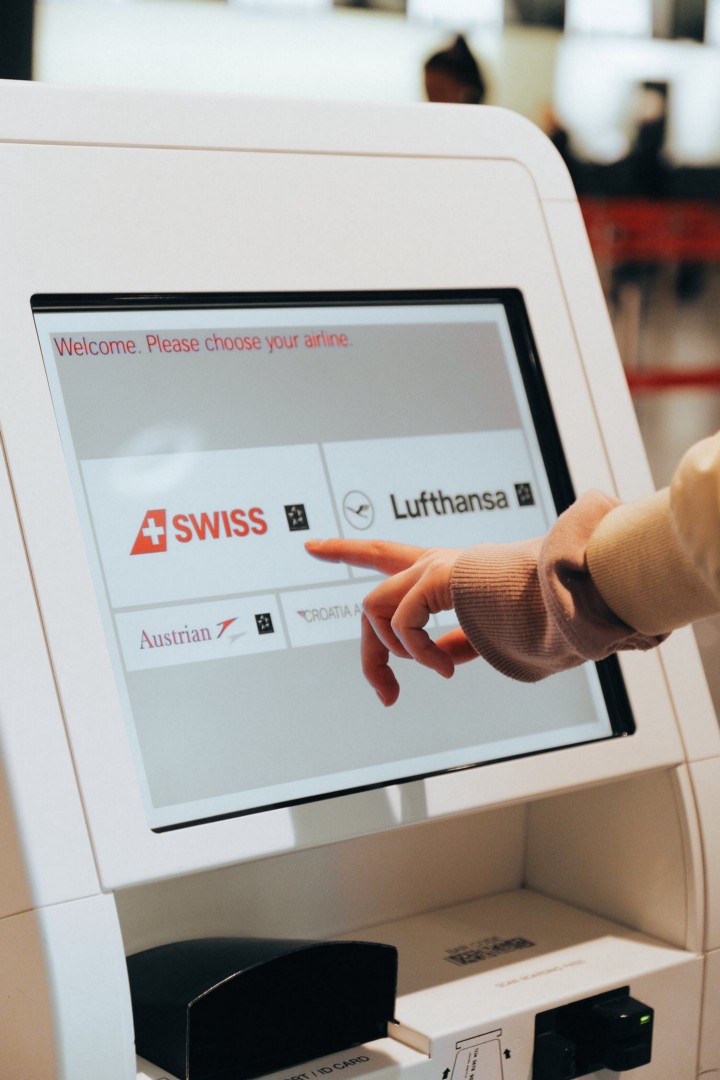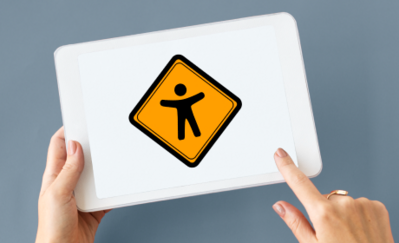What is the European Accessibility Act?
The EAA is a directive from the European Commission. The aim is to improve the functioning of the internal market for accessible products and services by removing barriers created by divergent rules in Member States. As a result, (particularly) digital products and services will become more accessible to Europeans with disabilities.
Note 1: The EAA (European Accessibility Act) should not be confused with the Web Accessibility Directive, which regulates the accessibility of websites of government and semi-government in the European member states.
Who does this act apply to again?
Each EU member state will have to incorporate this Act into their own law(s).
It will apply to:
manufacturers
importers
representatives
distributors
providers
To which products and services does the act apply?
It will apply to many products and services:
Computers and operating systems
Smartphones are also included. Tablets, smartwatches and game consoles (Xbox, Playstation, Nintendo Switch) are not mentioned, but it seems strange to us that it should not apply to them.
E-readers and the operating system that runs on them.
It concerns operating systems such as Windows, macOS, ChromeOS, Unix (Linux, BSD,…) iOS, Android, watchOS. No apps or software such as antivirus software, word processors, browsers, chat programs, ..
For open source operating systems in the Unix category, the developers are responsible for implementing accessibility. They are then seen as manufacturers.
Services for digital TV and equipment
Streaming services such as Disney+, Hulu, Netflix, Amazon Prime, Apple TV+, VTM Go, Streamz, Videoland, ZiggoGO etc.)
Equipment such as the set-top box of Proximus and Telenet (in the Netherlands equipment such as the Ziggo mediabox, KPN Experiabox or Digitenne).
Banking services
Self-service terminals such as ATMs, ticket machines and check-in machines;
Site
Online banking options and apps
Hospitality services. Think of making reservations, ordering food online and booking tickets;
websites such as AirBnB, Booking, Expedia, TakeAway, Deliveroo, Uber Eats, Holiday Auctions, websites of hotels, B&Bs, restaurants.
Websites of movie theaters and amusement parks
Others
Telephone services and related terminal equipment;
E-books (electronic books);
E-commerce (this means both the software and the webshop itself);
Transport of people (ticket systems and check-in machines and apps and websites);

When must the European member states comply?
European member states must have incorporated this act into their own laws and control bodies before June 28, 2022 and from June 28, 2025 they must apply enforcement.
When do manufacturers, importers, agents, distributors and providers have to comply with the Act?
From June 28, 2025.
There are some exceptions that are important.
Service contracts concluded before June 28, 2025 may continue without adjustment until they expire. But June 28, 2030 is the maximum date.
Self-service machines purchased before June 28, 2025 may be used until the end of their so-called 'economic life', but no longer than 20 years after commissioning.

How can manufacturers, importers, agents, distributors and providers comply with the Act?
In addition to sector-specific guidelines or standards (ISO standards, for example) and general guidelines that apply to products and services (and with which manufacturers, etc. are already familiar), the law provides guidelines that products and services must comply with:
With regard to websites and apps: comply with the standards of the W3C.
Ensuring that products are manufactured according to the guidelines in the Act.
Comply with technical documentation guidelines in the Act.
If products comply, draw up an EU Certificate of Confirmity and assign a CE mark to the product or packaging (to be checked by the importer and distributor)
Keep the certificate of conformity for 5 years.
What if a service cannot meet the guidelines of this act?
Then one must demonstrate through research why one cannot comply and keep this up to date for five years. One is then obliged to check again whether one can comply with the guidelines:
If the service offered changes.
At least every five years.
When requested to do so by an enforcement party.
What are our further expectations?
That clarification will be forthcoming about what this Act will specifically mean for hospitality services.
That the Web Accessibility Act will also be extended to the private sector so that the sectors affected by this Act are also covered with regard to their websites and apps.
If your company falls into the mentioned sectors, it is a lot of information to process and a lot of work will come your way. However, remember that accessibility and inclusion is an investment that pays for itself.
If you want to know what we can do for you for your website or app, don't hesitate to contact us by e-mail or telephone.




